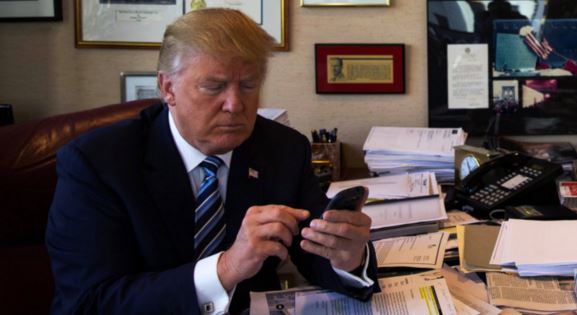Your cart is currently empty!

Is Publicly Diagnosing the President A Question for Professional Ethics?


As much as we’d like to believe that psychiatrists — as well as other mental health professionals — are above reproach, the truth is that they are people first. And people come with opinions, biases, and agendas. It’s because they are people first that governing bodies have come up with rules to govern their professional ethics.
Most of these rules are obvious and well understood. Psychiatrists aren’t permitted to date their patients, for example. But other rules aren’t as well known, such as the Goldwater Rule.
Put simply, the Goldwater Rule states that psychiatrists should not publicly diagnose the mental health of any politician. This rule is in place for a number of reasons, not the least of which is that it’s irresponsible to diagnose someone who hasn’t been evaluated in person.
This rule has been in place for decades, but was actually changed after Donald Trump was elected. It was made more strict, not only dissuading members from diagnosing a politician, but even from publicly commenting about it.
Urging the ‘Goldwater Rule’ Be Ignored
Yesterday, the American Psychoanalytic Association told its members that they should defy the ‘Goldwater rule’ and comment on President Trump’s mental health.
To be clear, the Goldwater Rule was established by the American Psychiatric Association and applies only to its members. The suggestion to ignore the rule was made by a different association entirely and, again, applies only to its members.
Even so, I have no idea how I feel about this.
On one hand, it doesn’t take a medical professional to look at Trump’s incessant early morning tweeting and outrageous public behavior and conclude that something is amiss with our commander-in-chief. A president with untreated mental illness can be a danger not only to himself, but to the entire country, and this should be alarming to anyone.
On the other hand, it worries me that I could one day run for public office and the very medical establishment I trust to manage my bipolar and anxiety disorders could just start discussing them openly. Even as a public figure, I would have a right to some degree of privacy and, as someone living with mental illness, I can’t just boycott the mental health establishment. I’m dependent on it.
How Do We Transform Stigma?
In Conclusion . . .
One of the advantages that I have in writing about mental health is that I’m not a medical professional. It’s a bit counterintuitive, I know, to think that less education and experience could be an advantage. But this allows me to say whatever I want because I’m not governed by anyone. As a private citizen, professional ethics don’t apply. In other words, the expectations of accuracy are lower.
Or, as my warning label says, “any information provided is for information purposes only and is not intended to treat, diagnose, cure or prevent any disease.”
I don’t mind that label, because I want people to be skeptical of people like me. It’s okay to trust what I’m saying, but be smart enough to verify it. I’m not sure I want the medical establishment to appear to be the same as an online content expert.
This blog originally appeared on Psych Central as, Are Psychiatrists Allowed to Publicly Diagnose the President?”
